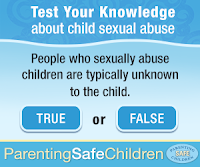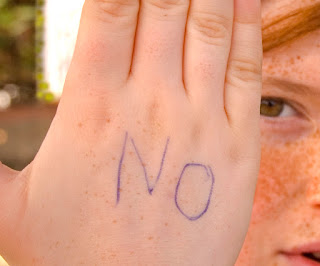Fact Check: Gender identity and same sexual orientation are not predictors of child sexual abuse. The vast majority of child sexual abusers are heterosexual males.
North Carolina’s House Bill 2 and similar legislation ban people from using public bathrooms that do not correspond with the sex listed on their birth certificate. Proponents of such legislation argue that it’s important because a transgender person, or someone posing as transgender, might otherwise enter a women’s restroom and attack a young girl.
Fact Check: There are hundreds of nondiscrimination measures in place across the United States, and according to law enforcement officials, there has not been a surge in bathroom victimizations.
Unbeknownst, you and your children have been sharing public bathrooms with transgender men and women long before North Carolina passed House Bill 2 and well before Target announced a policy allowing transgender people to use the restroom of their choice. We didn’t worry it about it then and we shouldn’t worry now.
Fact Check: Child sexual abuse typically takes place in homes, youth organizations, schools, camps, and places of faith – not typically in public bathrooms.
“Stranger danger” is among a parent’s worst fear and such occurrences garner a great deal of media attention because they are brazen and sometimes horrific, but in day-to-day reality, people who sexually abuse children typically “groom” children and teens over days, weeks, and months. The abuser is not just alone with the child, but has authority over the child and takes advantage of the child’s trust.
Fact Check: 90-93% of child sexual abuse is committed by someone the child knows and trusts, who is already in their life – not by strangers.
 |
| Test Your Knowledge |
Female survivors are speaking up as well and a few have shared in the press that it would be traumatic to find a person with male genitals in the bathroom. My heart goes out to every survivor healing from sexual assault. It may be helpful to know that most gender neutral bathrooms, particularly at this point, are single-stall bathrooms – often labeled “Family Restroom” – so anyone using that bathroom is alone anyway.
In the absence of facts, I believe that people are contributing to a climate of discrimination that hurts transgender people – and does nothing to keep children safe from sexual abuse. In fact, discrimination not only hurts the group whom it targets, but in this case it’s a dangerous distraction. I urge people to redirect their focus to meaningful ways of keeping children safe.
- Educate yourself about grooming behaviors so you can spot behaviors of concern.
- Teach children the difference between secrets and surprises. A secret is something that someone asks you “never” to tell and makes you feel uncomfortable. A surprise is something that makes you feel good and will come out into the open like a gift or a party.
- Maintain a “No secrets” policy in your home. Let your kids know that you don’t have secrets, only surprises. Instead of saying, “Don’t tell Mom I let you stay up tonight or we’ll both get into trouble,” you might say, "I'll let you stay up late tonight and if Mom and I disagree about bedtime, we'll work it out. It's not your problem."
- Discuss boundaries around touch with all of your child’s caregivers, including family members, coaches, teachers, and faith leaders, and let caregivers know that your child does not keep secrets and has permission to tell you everything.
- Let adults know that your child has permission to say “No” if he or she ever feels unsafe.


Thank you Feather for another article about real ways about protecting our kids.
ReplyDelete